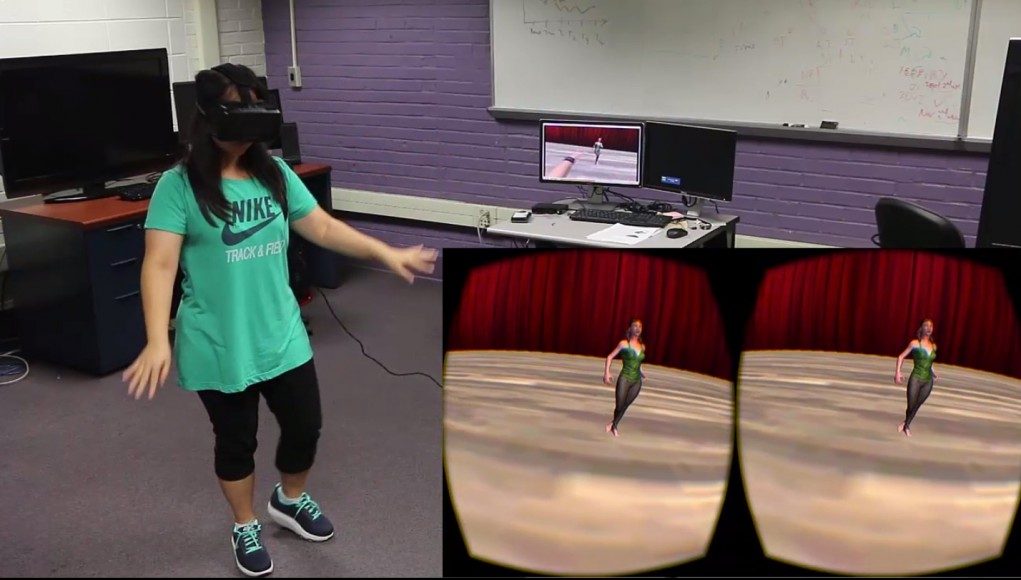 The concept of embodied cognition is a hot topic within immersive education circles, and was a featured topic at during the Embodied Learning educational workshop that happened at the IEEE VR academic conference. Embodied Learning could help revolutionize education by incorporating our bodies within the learning process.
The concept of embodied cognition is a hot topic within immersive education circles, and was a featured topic at during the Embodied Learning educational workshop that happened at the IEEE VR academic conference. Embodied Learning could help revolutionize education by incorporating our bodies within the learning process.
We generally believe that humans think with our brains, but embodied cognition theories suggest that we also use our bodies and surrounding environments in order to think and learn. This has huge implications for VR since it both provides a mechanism to be able to more fully engage within the learning process as well as have more control of our contextual environments that are optimized to teach different concepts.
I had a chance to catch up with educator Erica Southgate from the University of New Castle at the Embodied Learning workshop this past March. She’s from the University of Castle in Australia and is using serious games and augmented reality to teach literacy. She’s exploring how to use social VR to enable high prestige professionals to mentor disadvantaged youth, and she’s also studying how indigenous cultures use social structures and knowledge holder rituals in order to train youth, and how this could inspire open world collaborative learning environments in VR.
LISTEN TO THE VOICES OF VR PODCAST
For more information on Embodiment Theory and Embodied Cognition, then be sure to check out my previous interviews about using dance to teach computational thinking, as well as with Saadia Khan and Embody Learning workshop keynote presenter Chris North.
Homework for Immersive Analytics: Read Margaret Wilson's "Six Views of Embodied Cognition."https://t.co/1kQffI3Y2Z pic.twitter.com/kbXzS7QLKK
— Kent Bye VoicesOfVR (@kentbye) March 20, 2016
Support Voices of VR
- Subscribe on iTunes
- Donate to the Voices of VR Podcast Patreon
Music: Fatality & Summer Trip







